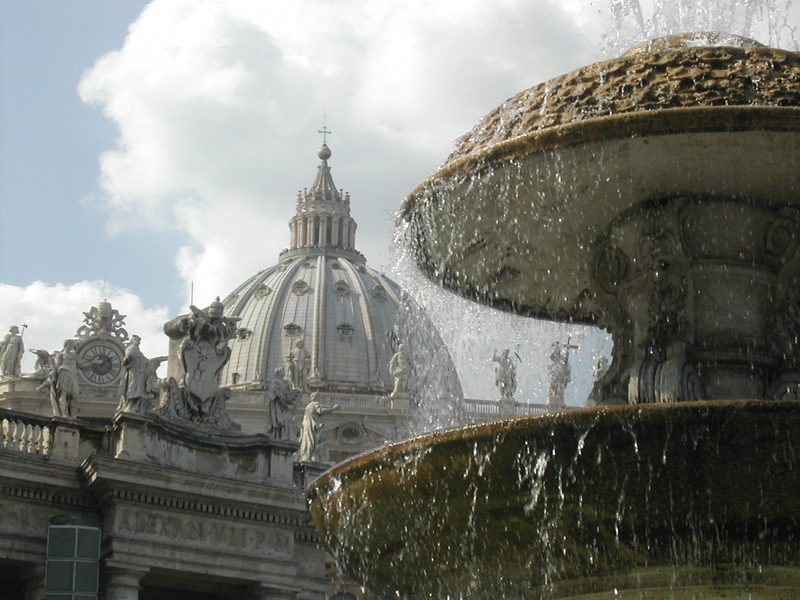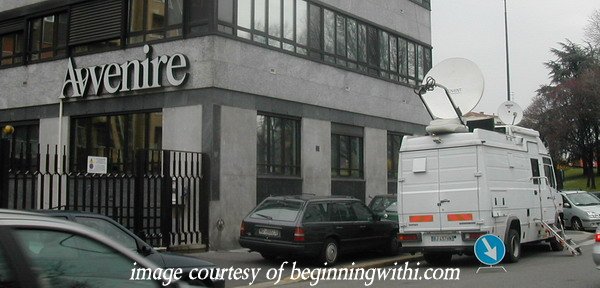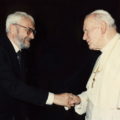As you may have noticed, we’re on the verge of a video revolution. Videocameras are cheap, and many technology companies (including mine) are working hard to create products and systems that will make it easy for anyone to distribute video online. The ranks of videobloggers are swelling rapidly.
In the developed world, we are already under surveillance much of the day, by perfectly legal security cameras. We may also be photographed at any moment, with or without our knowledge, by any photo-capable cellphone camera. Or videotaped by anyone carrying a videocamera, some of which are now small enough to carry in a purse, and to casually conceal in the palm of your hand while shooting. Posting a photograph or short video to the Internet where the entire world can see it is only a few minutes’ work.
In other words: anything you do in public, and many occasions you may imagine to be private, could potentially be seen by the entire world. Get used to it, because there’s not a damn thing you can do to prevent it. Your life is now in the public domain.
The laws on privacy vs. the public’s right to know are unclear in most countries, not having been conceived for a world in which everyone is potentially a videojournalist (or paparazzo). Once a photograph or film has reached the Internet, it’s out of everyone’s control: anything sufficiently enticing or appealing, funny or appalling, is going to spread like a virus, and there won’t be anything the “victim” can do about it. Sue the originator, perhaps, assuming that he or she can be identified, but in most cases any lawsuit won would be at best a pyrrhic victory: you might get a few dollars, but the publicity surrounding such a case would only ensure the wider spread of the offending material.
Many humiliating photos and videos already circulate widely. A few humili-ees have become minor celebrities as a result (viz. Gary Brolsma); some will never live down their 15 minutes of “fame.” Undoubtedly some are emotionally scarred, and may even have suffered economic damage. From time to time we all do things, or have things happen to us, that we’d rather no one ever saw, but nowadays the chances are good that, sooner or later, someone will.
This can, of course, be a good thing. The photos of Abu Ghraib surfaced because someone was appalled by what was going on. Light was shed on some very murky corners of American policy, things the American government was (and probably still is) doing that we should all be aware and ashamed of. Releasing those photos to the Internet was someone’s act of whistle-blowing, and we should all be glad that they did it.
As David Brin predicted years ago in The Transparent Society, turning the cameras on authority helps keep authority in line. Cases are now coming to trial of protestors who were arrested during last year’s Republican National Convention in New York city. In one case, the police claimed that the accused had resisted arrest and had to be physically dragged away, and they had video apparently proving this. Several amateur videos of the same scene showed the man peacefully walking away with the police. The police then claimed that their tape had been “inadvertently” edited. Oops. Case dismissed.
So I don’t want the cameras turned off. If the tradeoff is my privacy vs. my right to know what authorities and others in power are doing, I can live with less privacy. Sooner or later, someone will post a picture of me picking my nose on the Internet for all to see. I may be embarassed, even humiliated, but basically I have nothing to hide.
Which is, in the end, the real solution: lead a blameless life. That is, don’t do anything you’d be ashamed to have your neighbors know (life’s too short for shame anyway), or could get into trouble for if the law found out.
I guess your response to this depends on whether you believe that any publicly-available information could be used against you by a totalitarian government. Citizens of China and some other countries currently have good reason to worry. Some Americans also believe that they may, someday, need to take up arms again against a repressive government. Or at least dump some tea in Boston Harbor. More optimistic types like myself believe that truly free information will eventually help to topple the nasties.
Even the oppressive government of China is beginning to feel the power of bloggers with cameras. In a recent New York Times op-ed column, Nicholas D Kristof “says collision between Internet and Chinese authorities is one of grand wrestling matches of history; notes there are four million blogs in China, and 100 million Chinese now surf the Web; says when sites are banned, Chinese get around them with proxy servers; says some sites publish investigative reports of official wrongdoing; says Internet is playing watchdog role in China that press plays in West; says Chinese leadership itself is digging Communist Party’s grave, by giving Chinese people broadband.”
Whatever we believe about the pros or cons, this is one area where technology is steamrolling over law and custom. Privacy is effectively dead. Long live transparency!







